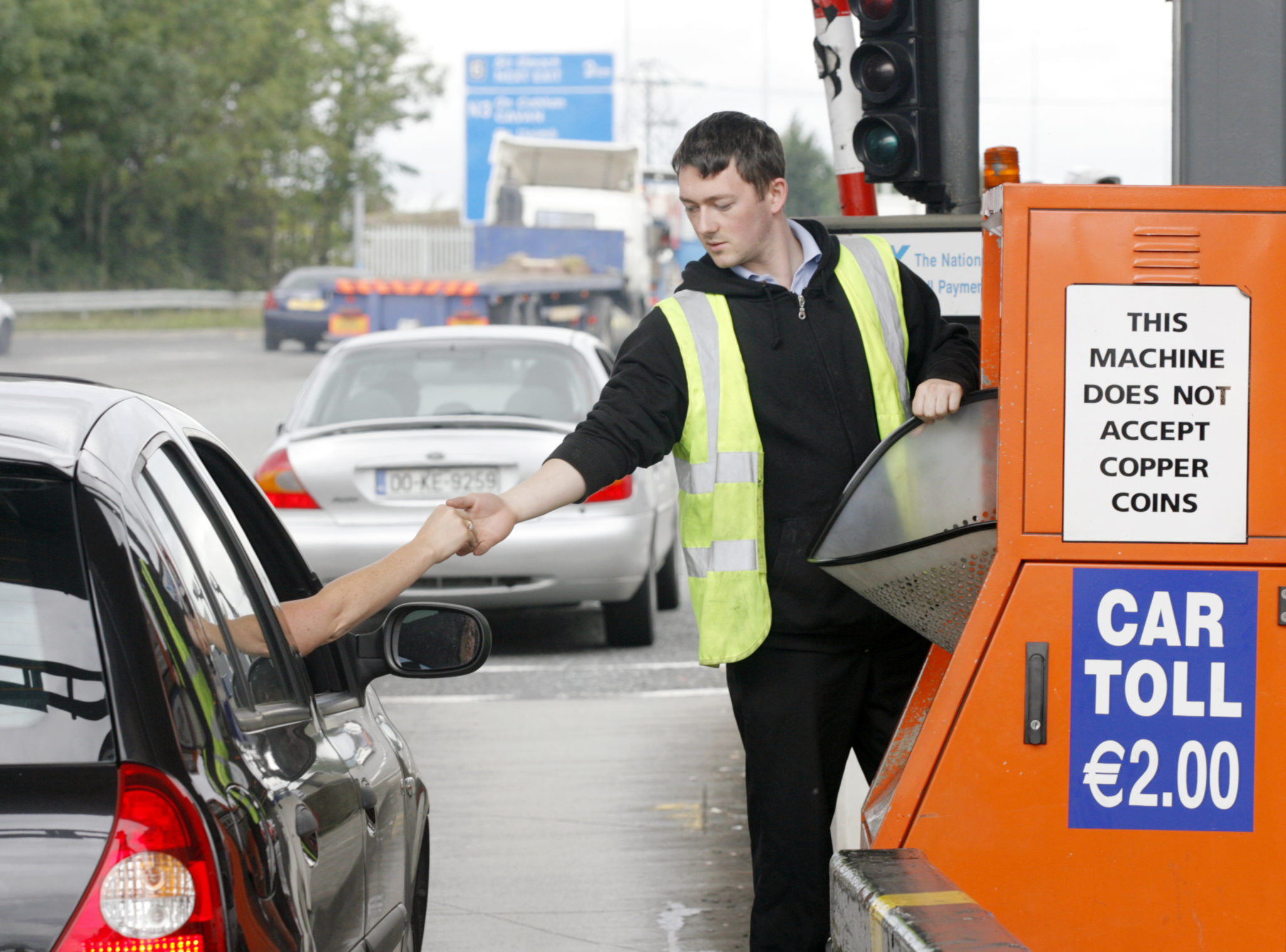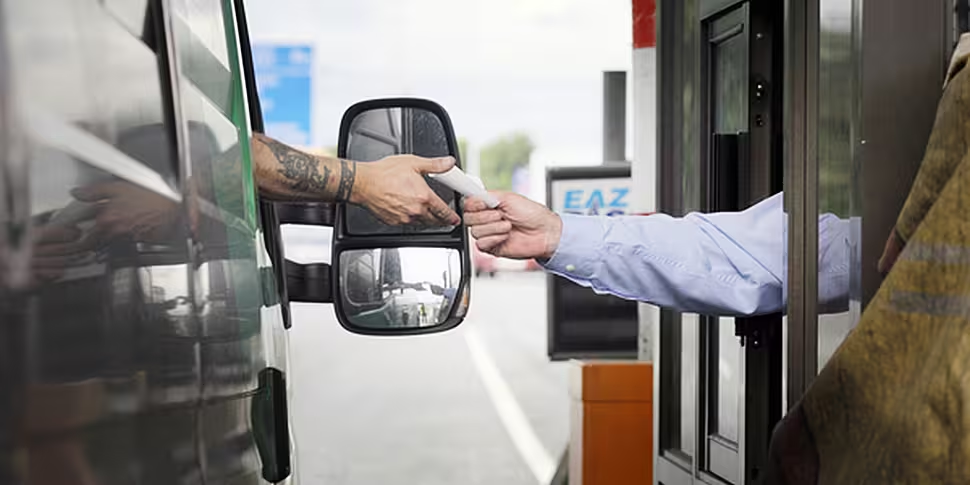A further hike in Irish road tolls will force ‘poorer people to avoid them’, while the wealthy afford them.
That's the warning issued by Irish Road Haulage Association President, Eugene Drennan, who was speaking to Newstalk Breakfast as road tolls are expected to increase in January 2024 for the second time in six months.
Yesterday, Minister of State at the Department of Transport Jack Chambers said Government would "consider" deferring the price hike.
Last month, drivers saw increases of up to 10 per cent to drive on some of the country's main roads.
The next toll increase would be based on the 6% inflation rate, in order to fund the developing MetroLink.
Mr Drennan said road tolls are "disjointed" across the country, with the road haulage industry bearing the brunt of the costs.
"We pay a lot of money on the M50 toll bridge," he said. "It's a very, very high cost and it's only people in the west and southwest."
"You pay nothing in the East, you pay a lot in the West," he said.
"The carte blanche brings huge costs and people will eventually have to avoid them. The poorer people will have to avoid them, the wealthy can afford it."
'Balance'
ESRI economist and researcher Muireann Lynch said that increased tolls would "rebalance" the costs towards urban drivers and away from rural drivers.
"[Rural people] would save more on the reduction in excise duties than they would pay in the likes of congestion charges," she said.
"It would rebalance it toward urban drivers by increasing things like tolling and by introducing congestion charging.
"It's about balancing it more so that we all get safer roads, less congested roads, and better public transport because it becomes more reliable due to less traffic.
"Some people actually save a little bit and other people pay a little bit more."
Social costs
Ms Lynch said road costs are split into two divisions; social costs and private costs.
Social costs are paid for by putting high duties on emissions, accidents, and noise.
"The idea is that you would reduce those duties, and instead you would recoup that money through increased congestion charges, increased tolling and possibly also through road pricing," she said.
"We're balancing the social costs of driving across a wider set of drivers."
'Wishful thinking'
Mr Drennan said he didn't agree "in the slightest" that the toll increase would be financially beneficial to drivers.
"All of my life, I've never seen them giving anything back; that we would pay less and they would give something back," he said.
"That is wishful thinking and I can't see it coming in."
 Employee collects toll payments on the M50 in August 2008. Picture by: Mark Stedman/RollingNews.ie
Employee collects toll payments on the M50 in August 2008. Picture by: Mark Stedman/RollingNews.ieMs Lynch said it makes "economic sense" to increase the amount Government charge for road usage.
"We don't really charge for road usage enough, and in some cases, we don't charge for it at all," she said.
"You can make a separate judgement as to whether or not that would ever happen politically.
"It would be better for everybody; some people [would] be better off financially and society will be better off as a whole because we will be pricing our roads in a more efficient manner. "
You can listen back here:









